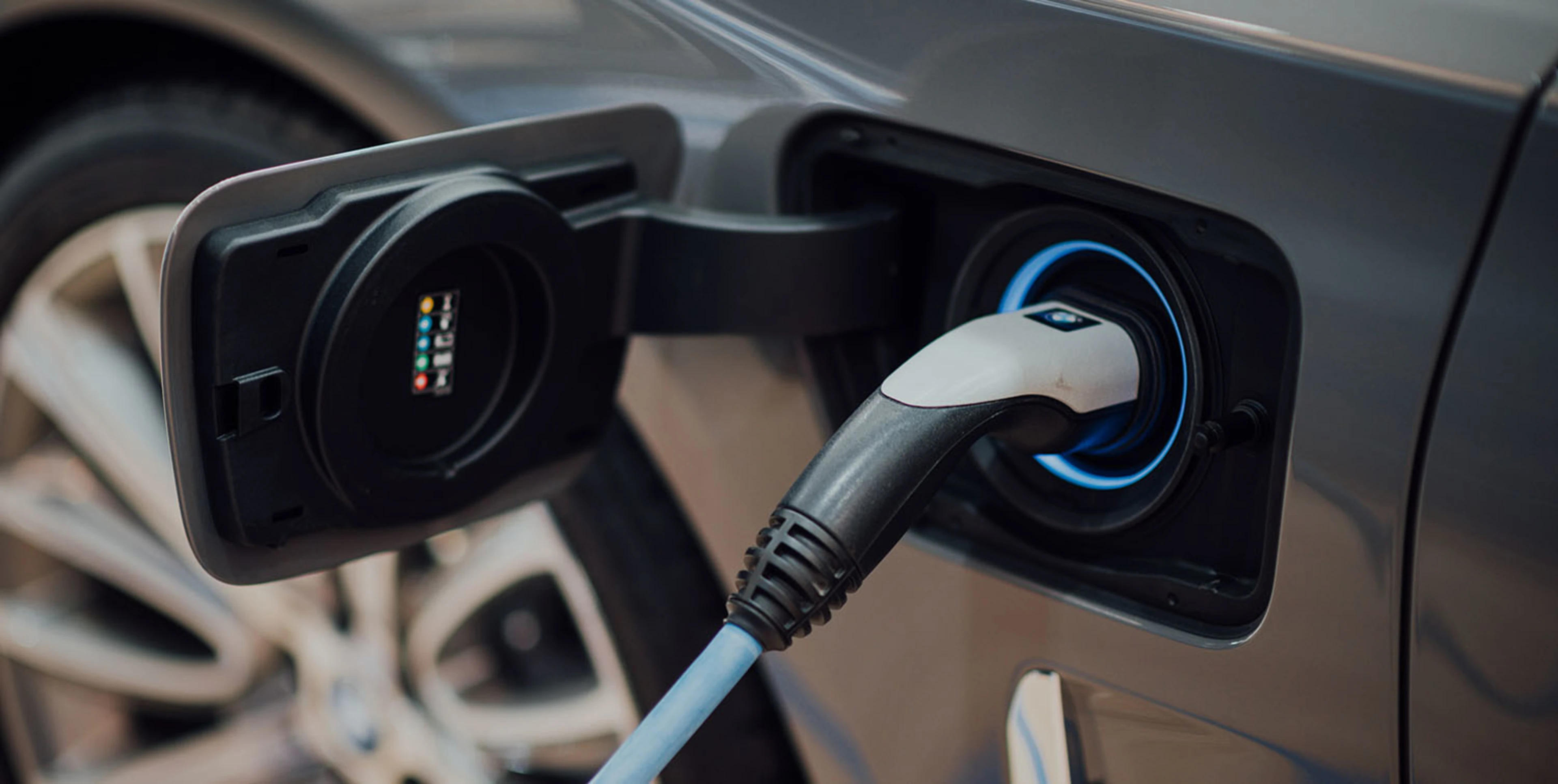The era of internal combustion engines is almost over. There is a new car in town. Electric cars are taking over the world, with 20% of all cars bought globally by 2025 expected to be electric.
They’re better for the environment, cheaper to run, more reliable and easier to drive - no wonder they’re beating their petrol counterparts. Petrol diesel cars are set to be a thing of the past, with 6.5 million electric cars expected to be on UK roads by 2030. If you are new to electric vehicles, then here is a useful guide on everything you need to know to make the switch as smooth as possible.
Benefits of electric cars
Transportation is one of the biggest emitters of carbon dioxide. Switching to environmentally friendly modes of transport is one of the best things you can do to significantly reduce the amount of CO2 you produce.
For shorter journeys, walking or cycling is not only great exercise but also emits no carbon. If you only need a car rarely, why not use a sharing service? Some people are coming together with their neighbours to share a car. Electric bicycles are the most efficient electric vehicle, and some have a range of up to 50 miles, so can be used for most journeys. But, when it comes to needing a car for long journeys, an electric car is the best answer by far…
1. Easy to drive Most of us have never driven an electric car before, and therefore can be uneasy about switching over. However, electric cars have been found to be much more convenient to drive, making the switch relatively easy. They’re also extremely fun to drive – once someone gets an electric car they almost never go back! You can book a test drive at your local garage to get used to driving an electric car before purchasing one.
2. Low running costs Electric cars are often more expensive upfront (although this will change over time – cheap electric vehicles are coming), due to their latest technology being more costly than older petrol models. However, they are much cheaper to run over the course of their lifetime. The cost of charging electric cars is cheaper than the cost of petrol, and so are the repair costs as electric cars have very few moving parts relative to combustion engines which mean they can last for ages.
3. Grants available There are often grants available that mean the cost of electric cars is lower than petrol diesel cars in the long run. From discounts on buying electric cars to help cover upfront costs, to ‘green zones’ where you can avoid paying penalties in low emission zones (ULEZ). It is worth thoroughly researching what grants are available in your area to make electric vehicles more affordable. For businesses, there are extremely attractive tax advantages. Many businesses offer salary sacrifice schemes to facilitate the purchase of an electric car – ask your company what they offer.
4. Long lasting car batteries There are many misconceptions around electric car batteries and how long they last, with people assuming that the batteries will need constant replacing. However, this is not the case at all! EV batteries are built to last, which contributes to the low repair costs, with some electric cars doing over 100,000 miles with the batteries still going strong.
5. Better for the environment than petrol cars Electric cars run solely on electrically charged batteries. This completely removes the need for petrol or ‘petroleum’ - a fossil fuel. It also means that electric cars produce zero pipeline emissions, which significantly reduces the harmful substances being released into the atmosphere and, indeed, our lungs. Therefore, electric cars are far better for the environment and us than petrol or diesel cars.
Types of electric cars
There can be lots of confusing jargon and acronyms surrounding electric cars, but the main thing is to look for is Electric Vehicles (EV) and Battery Electric Vehicles (BEV). They are the best cars for the environment, and easy to use, making the need for Hybrid cars obsolete. Their range can last over 300 miles, they are lighter than hybrids and use electricity more efficiently, as hybrid cars often rely heavily on petrol, making them the perfect car to invest in. Whilst it may be tempting to think of getting a hybrid as a bridge to an electric car, the rise of long range EVs has made that unnecessary. Whilst the Tesla Model 3 is currently leading the way on sales (and it is a great car) there are loads of brilliant EVs on the market for you to try. Pick the one that best suits your family’s needs, but some highly rated ones include the KIA EV6 and E-Niro, the Skoda ENYAQ and Hyundai Ioniq.
Things to consider when buying an electric car
Do I need the longest-range electric car? If you commonly drive long distances then an electric car with a long range may suit you best. Each electric vehicle comes with a product specification that includes its car range so you can make an informed purchase decision. But remember, unlike your old petrol car, most people can charge their car from home so you can leave your house with 100% battery – not half a tank of fuel. It also happens whilst you’re doing other things (usually sleeping), so no more standing in the cold with a fuel nozzle in hand. A modern electric car will have a long enough range for almost all road users. Talk of ‘range anxiety’ is now largely based on outdated views of electric cars.
How much does it cost to charge an electric car? Like most things, the cost of charging an electric car varies between models and where you get the electricity from. However, one thing they share is that it's significantly cheaper than the cost of petrol. On average, petrol at the time of writing is 146p per litre, whereas electricity is 18-20p per kWh, which will amount to significant savings in the long run.
There are even tariffs in place that make it cheaper to charge your car in off-peak hours. For example, Octopus Go customers can access cheap electricity between 00:30 - 04:30 every night, so they can charge up their EV for a fraction of the price of a traditional car.
How long does it take to charge an electric car? The time it takes to charge your electric car can depend on manufacturer, battery size and type of charger you have. Therefore, it's imperative you check the car specifications and do your research before purchasing an EV. It also pays to research which charger you get. We’re on the cusp of the emergence of ‘vehicle to grid’ chargers which mean you could even get PAID to sell electricity from your car back to the grid. Typically, charging time ranges between 6-24 hours so it is best to charge your car overnight, which we also know can be cost effective as well. Super-fast charging is increasingly common, so the era of charging within minutes isn’t far away.
Where can I charge my electric car? The vast majority of charging happens at home. When first buying your electric vehicle you can install a charging point at your house, with grants helping to cover the costs. Therefore, your car will always be charged up and ready to go so you don’t have to worry about running out of battery.
If you are on a road trip or forgot to charge up your car at home then there are charging points up and down the country, with the network growing all the time. Just like you would stop for petrol, you can recharge at service stations or car parks. Some manufactures like Tesla even have their own charging stations with smart technology that tells you where your closest one is. The early days of electric vehicles did suffer from slow and unreliable public chargers, but we’re seeing the picture improve all the time. Gridserve is doing great work upgrading and expanding the Electric Highway. Finding a fast, working charger is soon going to be a problem of the past.
Electric cars: making the switch is simple and the benefits can be huge
There has never been a better time to buy an electric vehicle. They’re an important part of a transition to a low carbon world, with governments tailoring grants and legislation towards making electric vehicles the car of choice. Their low lifetime costs and ease of use mean they will become the most common car in the near future. Therefore, if you can’t go car free, switching to an electric car is one of the best lifestyle changes you can make to live a planet friendly lifestyle.
For more ways to help repair our planet read our other articles on Low Carbon Diet or Heat Pumps, and sign up to one of our Pinwheel Plans to make a meaningful difference today.










